Swinburne University researchers have discovered that well-fed bacteria won’t damage ships hulls.
By giving bacteria tasty food, in the form of different chemicals, Muhammad Awais Javed is distracting bacteria from eating metal and other surfaces.
Bacteria are well known for the risk they pose to human health. But they also pose a risk to inanimate materials, costing the maritime and oil and gas sectors billions of dollars each year in damages.
Bacteria can gain energy from iron and other chemical elements at the surfaces of metals, ceramics, and plastics. In the process of attacking these surfaces for food, they cause corrosion and damage.
But Awais thinks fixing this problem could be as simple as feeding the bacteria something they like better than metal.
He has trialled a range of different chemicals as food: when the bacteria liked the food, they grew happily and multiplied, and most importantly, they left the metals alone. However when fed food they didn’t like, the bacteria became stressed, turning back to the metals and causing more damage.
So by keeping bacteria full and happy with other foods, we’ll reduce the need for replacing pipelines in cities and keep the surfaces of ships intact for longer.
Contact: Muhammad Awais Javed, Swinburne University of Technology, 0450 797 132, mjaved@swin.edu.au
Banner image: Awais visualising a corrosive steel surface caused by bacteria using a 3D optical profilometer-credit DMTC Australia
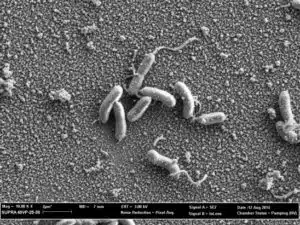
Sulphate reducing bacteria on a steel surface. Credit: Muhammad Awais Javed

Awais presenting at Fresh Science-credit Tom Rayner

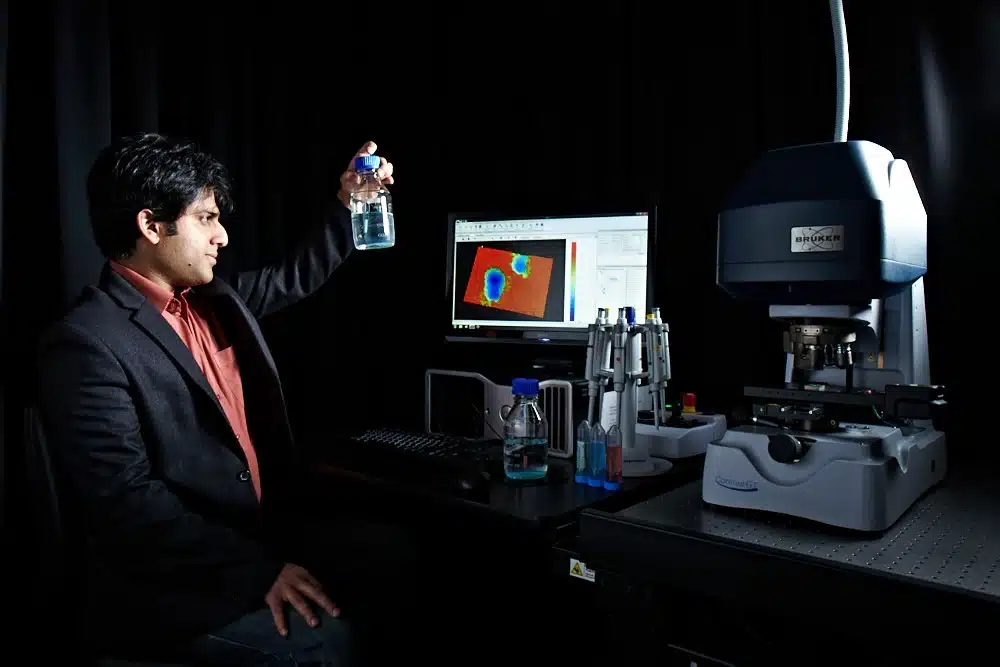
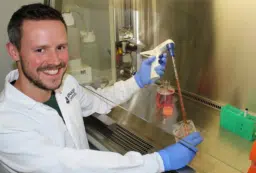
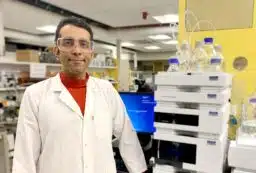
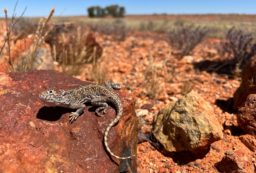
 Fresh Science is on hold for 2022. We will be back in 2023.
Fresh Science is on hold for 2022. We will be back in 2023.